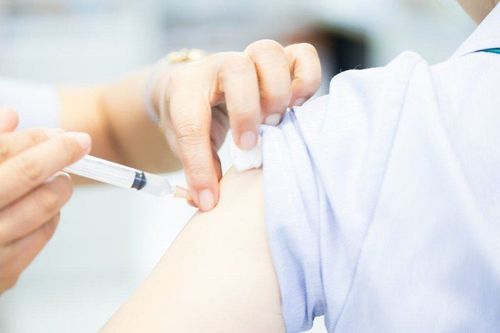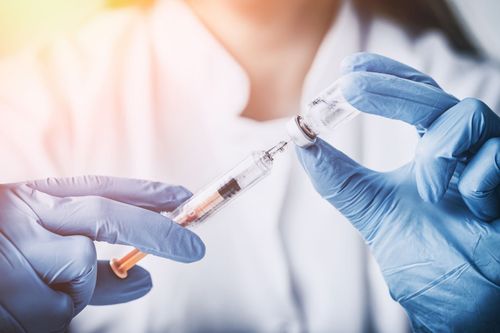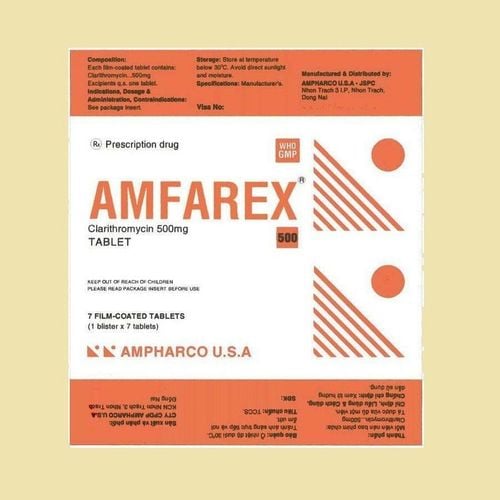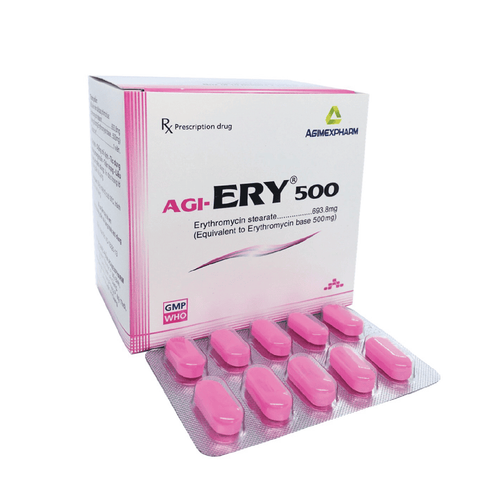This is an automatically translated article.
Vaccines in use today against diphtheria and tetanus (i.e., DT and Td) and also include protection against pertussis (i.e., DTaP and Tdap). Children under 7 years of age should receive the DTaP or DT vaccination while older children and adults should receive Tdap or Td. However, regardless of the type of vaccination, a booster shot of the diphtheria-pertussis-tetanus vaccine is always needed to ensure lifelong immunity.The article is professionally consulted by Master, Doctor Doan Ngoc Quynh - Pediatrician - Pediatric Center - Vinmec Times City International Hospital. Doctor has 7 years of experience working in the field of Pediatrics.
1. What is the diphtheria-pertussis-tetanus vaccine?
Diphtheria Diphtheria was once a major cause of morbidity and mortality in children. This is an infection caused by the bacteria Corynebacterium diphtheriae. Symptoms usually come on quite slowly, starting with a sore throat and fever but are characterized by a gray or white patch that develops in the throat, which can block the airway and produce a crackling sound when inhaled. Potentially fatal complications of the disease include myocarditis, neuritis, kidney failure, or bleeding due to diminished platelet counts.Beginning in the 1920s, diphtheria rates fell rapidly with the introduction of widespread vaccination. Studies estimate that vaccines containing diphtheria toxin protect nearly all people (95%) for about 10 years. Accordingly, protection diminishes over time, so adults need a booster shot of Td or Tdap every 10 years for sustained protection.
Tetanus Tetanus is an infectious disease characterized by intense, uncontrolled muscle contractions. The causative agent is the bacterium Clostridium tetani, which is commonly found in soil, saliva, dust and animal feces... entering through a cut in the skin or a puncture wound by a contaminated object. Despite keeping the contractions fully awake, but if severe enough can cause fractures. About ten percent of cases have a fatal outcome.
A tetanus toxoid-containing tetanus vaccine has long been included in the immunization schedule for children because of the increased risk of illness in the first few months of life. Similar to diphtheria, studies estimate that a tetanus toxoid vaccine provides basic protection for all people for about 10 years. However, people still need a booster shot of Td or Tdap every 10 years to maintain optimal protection.
Whooping cough Pertussis is a highly contagious respiratory infection caused by the bacterium Bordetella pertussis. The initial presentation is a violent cough followed by a gasp that sounds like a "cry". Before vaccines were introduced, pertussis was seen as a childhood illness, a dreaded threat in pregnant women and in newborns.
The pertussis vaccine became widespread in the 1940s and cases of pertussis reached an all-time low in the 1970s. Since then, there has been a steady but slow but steady increase in cases. determined. One of the reasons that may contribute to this increase in immunity does not last long and the bacteria that cause whooping cough also change at the genetic level. Therefore, booster vaccination against pertussis along with diphtheria and tetanus is necessary.
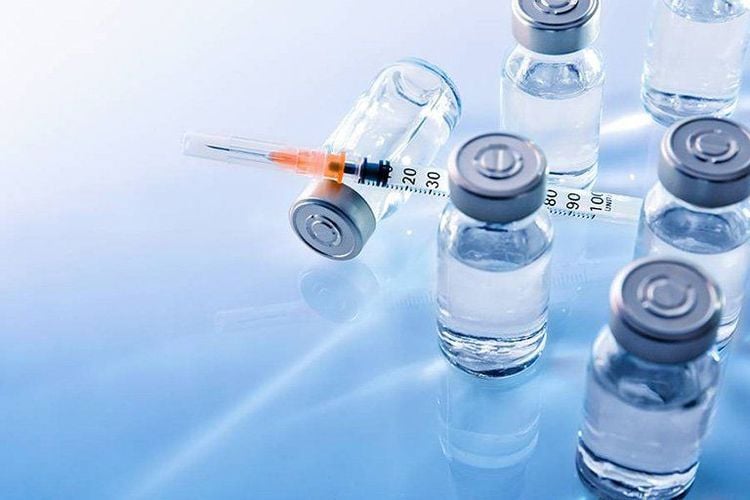
2. What are the diphtheria, tetanus, and pertussis vaccines?
Currently, in Vietnam, there are combined vaccines against diphtheria, pertussis, and tetanus such as:6-in-1 vaccine against diphtheria, pertussis, tetanus, polio, pneumonia caused by Hemophilus Influenza type b, hepatitis B (Infanrix hexa, Hexaxim). 5-in-1 vaccine against diphtheria, pertussis, tetanus, polio, and pneumonia caused by Hemophilus Influenza type b (Pentaxim). Prevention of diphtheria, pertussis, tetanus, pneumonia caused by Hemophilus Influenza type b, hepatitis B (Combe Five, Quinvaxem. SII) 4-in-1 vaccine against diphtheria, pertussis, tetanus, polio (Tetraxim) . 3-in-1 vaccine against diphtheria, pertussis, and tetanus (Adacel, Boostrix, DPT) The 2-in-1 diphtheria, tetanus and diphtheria vaccine for high-risk adults should only be used in the campaign when there is an epidemic, not universal injection.
3. Who should get the diphtheria, tetanus and pertussis vaccine?
The Centers for Disease Control and Prevention recommends vaccination against diphtheria, tetanus, and pertussis for everyone, starting at 2 months of age and repeated throughout life.In Vietnam, vaccines against diphtheria, pertussis, and tetanus are recommended for all children, 3 doses at 2, 3, 4 months of age and 1 booster at 18 months of age. . Children aged 4-6 years can repeat the 4-in-1 vaccine against diphtheria, pertussis, tetanus, and polio. For older children, adults, women before pregnancy or pregnant at 27 weeks to less than 35 weeks of pregnancy can repeat vaccines against diphtheria, pertussis, tetanus; then it can be repeated every 10 years to maintain long-term protective antibodies against diphtheria, pertussis, and tetanus bacteria.
Children as well as adults need to be fully vaccinated according to the recommended vaccination schedule to be able to protect the body against diphtheria, pertussis, and tetanus.

4. Who is not suitable for vaccination against diphtheria-pertussis-tetanus?
Due to age or medical condition, some people may not be able to get the diphtheria-pertussis-tetanus vaccine or delay it before getting it.That is when:
Have ever had a life-threatening allergic reaction or had a severe allergic reaction to a vaccination. Having an acute illness. Have a seizure or another nervous system problem. Severe pain or swelling after receiving a tetanus or diphtheria vaccine. Have had Guillian-Barré syndrome. When feeling unwell. If you have a mild illness, such as a cold, you can still get vaccinated. If the illness is more serious, wait until you recover.
5. What are the possible side effects of the diphtheria-pertussis-tetanus vaccine?
Most people who get the vaccine that protects against diphtheria, tetanus, and pertussis don't have any serious problems with the shot. However, with any drug, including a vaccine, there is a chance of side effects. Most of the symptoms are mild and go away on their own after a few days, such as redness, swelling, and pain at the injection site.Possible systemic symptoms are fever, loss of appetite, vomiting, body rash, body aches... If the patient has more severe manifestations such as allergies, anaphylaxis, convulsions ... should not be vaccinated again.
In general, diphtheria, tetanus, and pertussis vaccines have long been shown to be effective in preventing these infectious diseases, but have not been able to prevent all cases in whole life. Therefore, booster vaccination is necessary to ensure long-term sustainable prevention.
With the role of comprehensive health care for the community, Vinmec International Hospital is ready to provide vaccination needs for most infectious diseases circulating in Vietnam. As a place of trust for many parents, Vinmec has become a reliable place to vaccinate babies and young children. In particular, vaccines against whooping cough, diphtheria, and tetanus at Vinmec are always ready to serve and this is also one of the mandatory injections in the national expanded immunization program. Thanks to high-quality infrastructure and professional human resources, the role of vaccination at Vinmec International Hospital is increasingly popular, becoming a place to perform disease prevention, complete health care suitable for all family members.
If customers notice unusual problems, they should visit and consult with specialists.
Please dial HOTLINE for more information or register for an appointment HERE. Download MyVinmec app to make appointments faster and to manage your bookings easily.





